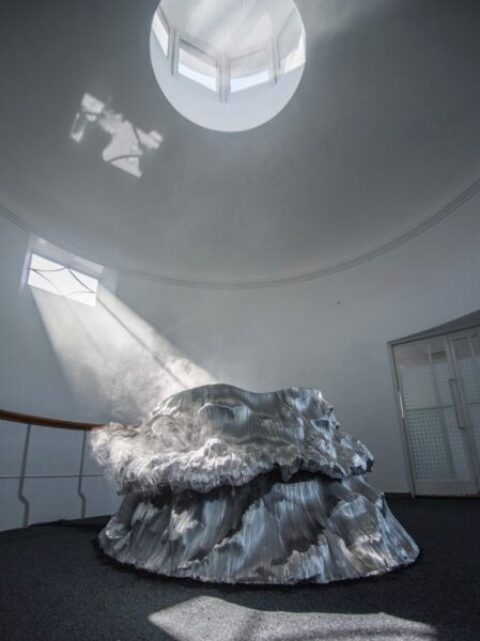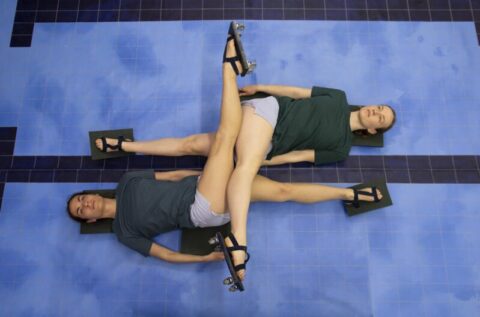In this second episode of the podcast series The Octopus, Eef Schoolmeesters speaks with artists Iris Bouwmeester and Maureen Jonker in Breda about the ongoing process and the production phase of an artist’s practice.
Do you enter a ‘flow’ while making a work? When and how do you reflect on the making process, and what qualities must a studio have to foster creation? How do you, as an artist, relate to the materials you work with, and to the collaborations you engage in?
Listen to the podcast on Soundcloud or Spotify.
The conversation took place in the studio of Iris Bouwmeester. Apart from a single sculpture leaning against the wall, the space was nearly empty. She had bought herself flowers to celebrate a fresh start after several works were sold. The open floor space invites the making of new work. Maureen Jonker’s studio often appears empty for long stretches of time, save for storage, materials, and sources of inspiration. Developing a new work often takes a year, during which the continuous collection of ideas gradually transforms into a ‘scenario’.
The works Iris Bouwmeester creates are made from accessible materials, ranging from organic to industrial, allowing her to be challenged by their inherent properties. The tactile sculptures sometimes appear to originate from natural processes, while others seem almost extraterrestrial. In her collaboration with Dyane Donck sculptures become part of musical installations and drawings evolve into moving animations. Working in the studio, for Iris, means letting go of rational thought: a different way of seeing – through the hands. Additionally, Iris is co-founder of the presentation space Club Solo and teaches in the Art & Research department at St.Joost School for Art and Design.

Sound sculpture ‘Crater’ by Bouwmeester
Maureen Jonker
Maureen Jonker works with performance, installations and objects. The body plays a central role – not her own body, but how the body can appear and behave as if it were a solid object that Maureen arranges. These scenarios often evolve into performances with choreography inside an installation, where the immediacy of the presentation allows for the unexpected. It must happen there, in the moment, where the process becomes visible. The performers Maureen works with therefore play a vital role. Maureen studied Fine Art at HKU in Utrecht and participated in TalentHub Inversie, among other programmes..

‘What if there isn’t water to perform in’ by Maureen
